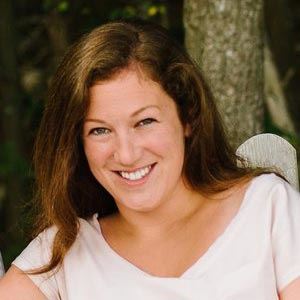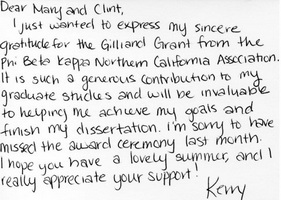Graduate Students Appreciate Awards
Robert Shepherd, UC Santa Cruz, Chemistry (Hendess award), May 4, 2025


Sarah Manney (Law, Stanford Law, Hendess Scholarship), April 28, 2024. Recent publication

Alexia Hernandez, Stanford, Linguistics (Reed Scholarship) 2024
 Hi Joanne and Ray,
Hi Joanne and Ray,
As we’re coming up on a week since the PBK luncheon, I just wanted to thank you both again for everything you did to make the lovely event possible. It was so great to meet the other graduate and professor awardees and to be in company with all of the board members and other PBKNA members!
I’m looking forward to staying in touch and seeing you at future events,
Alexia
M. Taylor Black, UC Davis, History
 Dear Joanne,
Dear Joanne,
I wanted to write and say thank you again both for this honor/award, and also for the wonderful luncheon. This financial support is opening up avenues for me to do important research that I really believe will make a difference in the field of Reconstruction and post-emancipation studies in the U.S, work that I believe remains crucial for creating and preserving a democratic and equitable society. The award and the chance to share my work with you all is an honor. Please pass my thanks on to those who also contributed to this, in case I am not using the appropriate email address, here.
Warmly,
Taylor Black
Thaïs Miller, (UC Santa Cruz) Literature (Gilliland Award) 2023
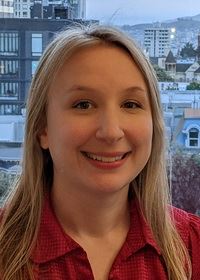
Dear Joanne Sandstrom, Phi Beta Kappa Northern California Association Committee Members, and Phi Beta Kappa Northern California Association Board,
From the bottom of my heart, thank you. Thank you for supporting me and my writing, which is truly reflective of my roots, personal passions, and goals for the future. I am incredibly grateful to have received the Phi Beta Kappa Northern California Association’s generous Gilliland Award. As I wrote to Mr. and Mrs. Gilliland, I hope that my ongoing research, writing, and graduate work can honor Professor Elizabeth (“Betsy”) Gilliland, for whom this award was established, as well as Mary Turner Gilliland’s long terms of service as treasurer and then president of the Phi Beta Kappa Northern California Association.
Since I graduated from American University in Washington, DC in 2009, Phi Beta Kappa has offered a meaningful organizational resource of vital importance for me and my peers. After my first novel (Our Machinery, 2008) and short story collection (The Subconscious Mutiny and Other Stories, 2009) were published, Phi Beta Kappa organized one of my first book reading in New York City. A few years after I moved to San Francisco in 2015, I greatly enjoyed meeting other Phi Beta Kappa Northern California Association members at an event featuring UC Berkeley Emeritus Professor Robert Alter. I will never forget being immediately welcomed. I relish being a part of this community, and I am honored to be in the company of so many wonderful and accomplished scholars.
The Phi Beta Kappa Northern California Association’s vote of confidence in my work assures me that I am doing the right thing at the right time, and that means the world to me. Thank you again.
Sincerely,
Thaïs Miller
Thank you so much for your kind words and for the generous assistance through the Hendess scholarship! I am very honored and grateful to be receiving an award established by a fellow scientist, and I am touched by your story about your parents' constant support of your education. My parents, who do not have a college degree and who had to work multiple labor jobs to provide for our immigrant family, also encouraged my studies as I first took an interest in biology in high school. It was due to their sacrifice and support that I am able to pursue my academic interests today as a Ph.D. student.
I agree that science is advancing rapidly, and I am thrilled to be in the middle of these new and exciting developments. The support from your scholarship will allow me to focus fully on my research, and I hope to continue to make more contributions towards the progress in DNA forensics!
Best,
Remy
Alan Kong, UC San Francisco Medicine M.D., (studying glaucoma), (Hendess Award). YouTube Video: https://youtu.be/G-eAFHUj7JQ 2022
 Hi Joanne,
Hi Joanne,
I hope this email finds you well! As a brief update, with the generous help from the Hendess family and PBKNCA, I have been very fortunate to continue my medical training at the prestigious Jules Stein and Doheny Eye Institutes at UCLA!! This does mean that I have moved out of the Bay Area for the time being, but I do hope to return after my residency training to continue to serve the Bay Area. Thank you and PBKNCA for all your support in helping me achieve my goals and importantly, supporting my research endeavors to work towards treating and ultimately curing blindness :)
Best,
Alan
Jerika Barron, UC San Francisco, Biomedical Sciences (Norall award) 2021
 Dear Joanne and the PBKNCA,
Dear Joanne and the PBKNCA,
I want to express my gratitude for this generous scholarship and let you know I ... received the award. It is an honor to be awarded the Norall Family Scholarship and I am grateful for the support, especially during this challenging year! Please send my thanks to the PBKNCA and the the Norall Family award sponsors! All the best,
Jerika Barron
Claire Magnani, UC Berkeley, Chemistry (Hendess award) 2021
 Hi Ray,
Hi Ray,
I wanted to send a belated thank you for your kind message. I am very happy (and very thankful!) to know that this last phase of my studies has been funded by a fellow synthetic chemist! I can see from your work on toyocamycin that you have been no stranger to nitrogen-containing heterocycles– I have learned that these can be truly challenging compounds in their stability and in our ability to selectively functionalize them.
I received news a few days ago that our synthesis has been accepted by JACS with minor revisions, so I hope it will be out on the web soon!
Thank you again to you and your family.
Rebecca Ora, UC Santa Cruz, Film And Digital Media (Reed Award) 2017
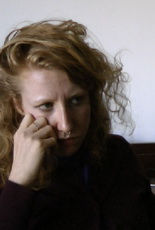
My deepest apologies for the delay in my response to this email; I am currently in a fairly remote area of Spain retracing the route of a 1932 Luis Buñuel film.
Thank you so much for all your work and for your wonderful introduction at the dinner. I was truly touched by your words and by the warm reception with which we were all met.
My primary website is rebeccaora.net
I also have a departmental profile page, a page for my award, and some additional work on other sites I host, but this is the most comprehensive site, and links to some of the others.
Thank you so much again,
Laura Bogar, Stanford University, Biology [Ecology and Evolution] (Hendess award) 2017
Dear Ray,
It was a real pleasure to have dinner with you, Rory, and the rest of the PBKNCA on Sunday. Thank you so much for the dinner, the wonderful conversation, and, of course, the generous scholarship! Your support has allowed my husband and I to breathe a little easier, financially, and has made it possible for me to sign up for the International Conference on Mycorrhizas in Prague this summer. (It's a pretty specialized meeting, but I am excited to go talk with all the people whose papers I've been citing for years!)
I am not sure how to best express my gratitude for your support, but concrete examples seem like a reasonable start. In addition to making conference travel possible, you have allowed me to make a number of small but important purchases that I had been putting off. From vehicle repairs to new running shoes, the improvement that this scholarship has made to my quality of life has been enormous. I will think of you each time I tie my new shoes for a jog around campus!
Meeting you and the other PBK folks was inspirational and humbling. Keep doing the great work that you do, and thank you very much for the support!
Best
Laura
Kerry Persen, Stanford, Political Science (Gilliland Grant) 2016
Read about Kerry's work
Elizabeth Grennan Browning, UC Davis, History 2015
Dear Joanne,
I want to send my sincere thanks to you and the Phi Beta Kappa Northern California Association Graduate Scholarship Committee. I am grateful for the generous support that I received as a scholarship recipient this past spring--it has proven invaluable as I research and write my dissertation in U.S. urban environmental history. Many thanks again for your generosity.
Sincerely,
Lizzie Grennan Browning
Ph.D. Candidate
Department of History
University of California, Davis
Received October 2015
Dear Ms. Sandstrom,
I wish to express my deep gratitude for the Phi Beta Kappa Northern California Association graduate scholarship that I was awarded in the spring of 2010. This scholarship allowed me to study how drought and climate change will affect the forests of the western United States.
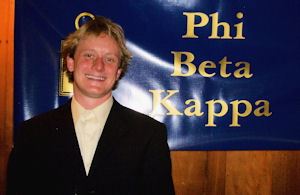
Waves of large-scale forest mortality have crossed the West in the last decade, heralded by hotter temperatures and severe drought. My research focuses on a recent forest die-off, Sudden Aspen Decline, which affects nearly a fifth of aspen trees in Colorado’s Rocky Mountains. While drought and climate change are thought to play the primary role in inducing this dieback, we currently do not know how drought kills forests, nor the underlying physiological mechanisms which are critical to predicting mortality and managing forests to prevent mortality.
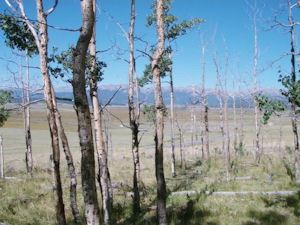
Dead aspen stand near Fairplay, Colorado and Highway 285.
This scholarship was critical for the success of the research. The generous support of the Phi Beta Kappa Northern California Association allowed me to monitor aspen trees during drought stress in summer 2010 to test the dominant hypotheses about drought-induced mortality.
While the mystery of what’s happening to the emblematic tree of the West is still unraveling, the research supported by the scholarship will greatly advance our understanding of how trees respond to drought.
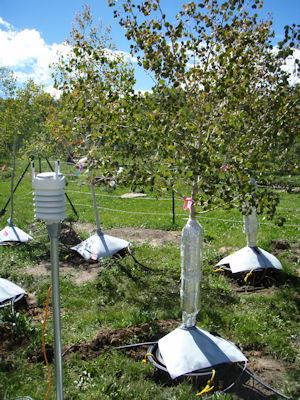
Aspen under study
I published an article this spring in the High Country News, found here, that highlights this research, as well as my perspective as a native Colorado resident returning to the forests I grew up in and finding them dying.
Ongoing updates about my research may be found here.
Thank you again for your generous support.
Sincerely,
Bill Anderegg
Ph.D. Candidate
Department of Biology, Stanford University
Received October 2010
Read about Bill's workRobert Pringle, (Stanford; biological sciences), Elizabeth B. Reed Scholarship 2007
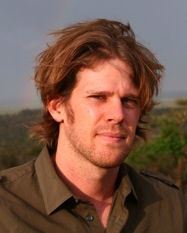 Dear Ms. Sandstrom,
Dear Ms. Sandstrom,
In 2007, I was the recipient of the Elizabeth B. Reed Memorial Scholarship from PBKNCA. I wanted to take a moment to thank you and the rest of the Association for this award, which came at a critical time in my graduate career and was a major factor in enabling me to achieve my goals. I completed my PhD at Stanford in June of this year. In September will begin a three-year term as a Junior Fellow at Harvard University.
My research over the past several years has focused on ecological questions in Australia and rural Kenya. In Australia, I worked the ecology and conservation biology of that continent's most endangered snake. My colleagues and I attempted to understand both why this species is threatened and what might be done to conserve it. In Africa, I worked on a variety of issues, ranging from how termites provide a template for the patterning of African savannas to the impacts of large mammalian herbivore species on savanna communities (and the corresponding question: what might happen if these large- mammal species go extinct?)
The support I received from PBKNCA was invaluable in enabling me to see these projects through, and I am profoundly grateful. Your scholarship program is truly a service.
Sincerely,
Rob Pringle
Links to coverage of Rob's work can be found at
The Pringle Lab at Princeton
Received September 2009
Robert Pringle was one of our Scholarship Recipients in 2007, receiving a grant of $5,000 to further his research. He graduated from University of Pennsylvania, received two MSc degrees with distinction from Oxford University, and is a graduate student in ecology at Stanford's Center for Conservation Biology.
At present he's working in Kenya with Professor Todd Palmer of the University of Florida, studying "mutualism." The ΦBKNCA grant helps support him in this research.
The thorny acacia trees of East Africa live in close harmony with ant colonies, and each depends on the other for health and survival - but disrupting that relationship can lead to death and danger, scientists have discovered.
And that, they say, could threaten the habitats of Africa's largest animals in many regions of the continent.
Normally, the huge swollen thorns on the branches of the scrubby trees provide housing for the ants, and they feed on rich nectar from the base of the acacia leaves. In exchange, the tiny biting insects guard and protect the trees by swarming out to repel big browsers like elephants and giraffes that would otherwise feed destructively on the acacia leaves.
The entire article was in the "San Francisco Chronicle", January 11, 2008, main section, "Tiny changes can trigger big evolutionary shifts," by David Perlman (Chronicle Science Editor), p. 6 (in dead-trees version), or online.Received January 2008

